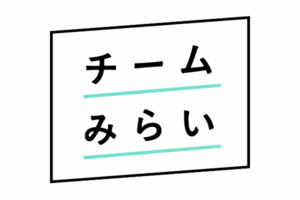Team Mirai Wins One Seat! How Will ¥31.5 Billion in Taxes Change? The Challenge of an Engineer Team Born in Nagatacho
Suddenly, are you surprised by the fact that in Japanese politics, approximately ¥31.5 billion (around $200 million USD) of taxpayers' money is spent annually with no restrictions on its use and no strict obligation to disclose receipts?
If this amount were allocated to medical or educational expenses, which directly impact our lives, how much help would it provide?
It's not irrelevant to our daily lives. A new movement, aiming to address this long-standing issue of "politics and money," is quietly beginning in Nagatacho (Japan's political center).
Nice to meet you, I'm Tak@. As a system integrator, I deal with the backend of systems every day. In this column, I will discuss the "system flaws" in Japanese politics and the new challenges to reform them, incorporating my expertise.
The Surprising "Hidden Face" of "Politics and Money"
Our taxes are disbursed from the national treasury as "party subsidies" to support the activities of political parties. This system was introduced in 1994, reflecting on the past when politicians excessively relied on donations from specific companies and organizations, leading to numerous financial scandals.
It was expected to be a clean source of political funds, replacing donations from companies and organizations.
However, the reality, contrary to our expectations, has many opaque aspects.
Party subsidies have no legal restrictions on their use, and reports only broadly categorize them into items like "personnel expenses," "office expenses," "public relations expenses," and "research expenses." Moreover, only expenses of ¥50,000 or more are, in principle, required to be listed as individual expenditures.
There is no obligation to attach receipts.
This makes it extremely difficult for us, the citizens, to verify whether the money is truly being used appropriately.
Even more serious is the criticism of "double-dipping." Despite the introduction of the party subsidy system, corporate and organizational donations are still not prohibited. This means that political parties currently receive both public funds (taxes) and private funds (donations from corporations, etc.).
This is strongly pointed out as being contrary to the founding principles of the system.
In addition, the problem of unspent subsidies not being returned to the national treasury but accumulated as "funds" within political parties has emerged. As of the end of 2022, the total balance of each party's funds amounted to approximately ¥21.5 billion.
Political parties explain this as "preparation for unforeseen circumstances such as snap elections," but the situation where taxpayers' money remains retained within the party without being used has drawn criticism as "tax hoarding."
Witnessing such a situation, I once again feel the weight of the phrase "politics and money." Without sufficient transparency, it will be difficult to gain public trust, no matter how wonderful the policies proposed.
The Recurring Ripple Effect of "Misuse"
In the past, inappropriate use of party subsidies has been frequently reported. Recently, there have been reports of Liberal Democratic Party member Mio Sugita being criminally charged for not reporting kickbacks from political fundraising parties in her financial statements.
Past cases suggest that even with the pretense of "appropriate use," the systemic "loophole" of having no specific restrictions on how the funds are used has become a hotbed for irregularities.
Nobutaka Murao (Professor at Kwansei Gakuin University) stated, "Is it acceptable to continue providing party subsidies as they are to political parties that have accumulated so much slush money and violated laws? I think it's time to discuss even abolishing party subsidies," and proposed strict penalties, such as not allocating any party subsidies for the next five years to parties that have committed irregularities.
Furthermore, there's the issue of "last-minute parties," where political parties repeatedly merge or split around the year-end and New Year holidays to meet the requirements for receiving party subsidies (5 or more Diet members, or 2% or more of votes in the most recent national election). This raises questions about whether taxpayers' money is truly being used for the benefit of the public.
In the field of system development, ambiguous requirement definitions often lead to significant rework and increased costs. In the political world, it's perhaps natural that similar problems recur when the definition of "appropriate" remains vague.
"Team Mirai" Challenges the "OS" Refresh of Politics
Into this stagnant Japanese political landscape, a new political party, "Team Mirai," launched by AI engineer Takahiro Anno, is attempting to bring about change through the power of technology. Their goal is to realize a "digital symbiotic society" that leaves no one behind in Japan.
As a concrete step towards this, they are advocating for an unprecedented concept: "creating an engineer team in Nagatacho."
Anno points out three challenges in current Japanese politics: "lack of digital literacy," "stagnation despite enthusiasm and motivation," and "difficulty in changing from the outside." He seems to feel that the existing system is slow to adapt to change and makes it difficult for citizens' voices to be heard.
Therefore, "Team Mirai" has clearly stated that even if they only secure one seat in the Diet, they want to "fully utilize" the party subsidies (approximately ¥150 million annually) that would be provided if they meet the requirements for a national political party, for the operation of this engineer team.
This team, consisting of about 10 highly skilled engineers and researchers, plans to release all their developed outputs as open source, allowing citizens to freely use and contribute to them.
Anticipated specializations include data scientists, UI/UX designers, and security engineers, who will collaborate with existing politicians and bureaucrats to promote the digitalization of policymaking.
I feel that this idea is precisely an attempt to bring the concepts of "agile development" and "open-source communities" from the world of system development into the realm of politics.
Instead of aiming for perfection, the approach is to first create something functional, learn from it, and improve it incrementally. I deeply resonate with this as an extremely practical approach to refreshing the rigid "OS" of politics and transforming it into a social system that can flexibly adapt to change.
Concrete Measures: How Engineers Will "Visualize" the "Political System"
So, what specific tools and mechanisms does this "Nagatacho Engineer Team" aim to create? They are striving to build "digital public goods" that directly reflect citizens' voices in politics and increase the transparency of political funds.
"Idobata System" and "Public Listening AI" for Citizen Voices
First, they plan to develop an "Idobata System" that allows citizens to participate in policymaking online. This system, inspired by successful cases in Taiwan, enables any citizen to submit proposals, and if they receive a certain number of "likes," the administration formally considers them, potentially leading to their adoption as policy.
Furthermore, they are developing "Public Listening AI (Broad Listening)" to analyze and organize the large volume of opinions submitted through public comments.
Currently, "public opinion" can be obscured by copy-pasted comments, but by using AI to aggregate opinions by meaning and "looking at the breadth of opinions rather than the quantity," the aim is for the administration to grasp diverse public voices efficiently and with high accuracy.
In such systems for aggregating citizen voices, ensuring transparency and security while promoting constructive discussion is paramount.
"Visualization Tool" for Tracking Political Funds
As an idea directly addressing the "politics and money" issue, the development of a "visualization tool" that allows anyone to easily see the flow of political funds is also planned. This is an attempt to make it possible to "track" the flow of funds, which is difficult with the current simplified and opaque financial reports.
Proposals from the business community include introducing double-entry bookkeeping equivalent to private companies, completely prohibiting cash transactions, and building a searchable database. "Team Mirai" aims to achieve this through the power of IT. This could also serve as an opportunity for citizens to become more interested in politics.
"Digital Public Goods" to Improve Administrative Efficiency
In addition, they aim to create a wide range of "digital public goods." For example, providing open-source systems that local governments can use to develop their own applications, and supporting their nationwide adoption.
Mechanisms to improve civil servants' working styles by eliminating faxes and paper documents, introducing AI-assisted workflows, and providing legal information via API.
Their ideas extend to every aspect of our daily lives, such as "digital maternal and child health passports" to reduce the burden of child-rearing, the spread of online medical consultations, AI-powered image diagnosis, push-type support for welfare services, and individualized education through "AI assistants" tailored to each child.
These initiatives are not so much about developing special new technologies, but rather about "extending existing technologies to every corner of administration and society that has not yet been digitized."
I believe that such efforts will resolve minor inconveniences felt in the busyness of daily life and enable many people to use their time more meaningfully.
A "Flexible" Path to "Ideal Politics"
"Team Mirai" aims to create "flexible mechanisms" that are not a one-time build but can adapt to change. In today's unpredictable world, with rapid AI evolution and unstable international affairs, social systems must also constantly evolve.
They propose introducing a "policy cycle that allows for failure and learns quickly based on data" to reduce the risk of ordering expensive systems all at once and becoming tied to specific vendors. This is precisely the spirit of agile development.
"Team Mirai" positions itself as a "utility party," demonstrating a proactive stance to not only achieve its own policies but also actively support other political parties and local governments in policymaking, technology utilization, and DX (Digital Transformation).
I feel this presents a new form of politics that transcends the rigid framework of "friend or foe" and instead promotes sharing knowledge and technology and cooperating for the common goal of "making society better."
I see such initiatives as a "constitutional improvement" for society's systems to flexibly adapt in a VUCA (Volatile, Uncertain, Complex, Ambiguous) world.
Summary: Just One Seat Can Change the Future of Politics
The opacity of political funds in Japan has long eroded public trust. The current situation, where ¥31.5 billion of taxes are spent annually with vague uses and repeated misuse, can only be described as a "system flaw" from the perspective of us SIers.
Ambiguous requirement definitions, low adaptability to changes, and the black-boxing of decision-making processes are precisely the challenges that should be most avoided in system development.
However, "Team Mirai"'s vision of an "engineer team in Nagatacho" is an attempt to shine the light of "technology" on this system from the outside.
Even with a small start of just one seat, their plan to utilize party subsidies to create "digital public goods" and realize transparent political funding and citizen-participatory policymaking tools holds the potential to bring about significant change in Japanese politics.
This challenge is not merely about "introducing IT." It is a movement that questions the very nature of society: "how to use technology to improve people's lives."
I personally expect the emergence of this engineer team to breathe new life into stagnant politics and lead to the realization of a truly democratic society where the voice of each citizen can be heard more easily.
How do you imagine this engineer team will bring about a "new wind" in our society?
And when that "new wind" blows, how will your life and your idea of "ideal politics" change?
Takahiro Anno's challenge is indeed a crucial project that will influence Japan's future. As an SIer, I will pay close attention to this endeavor and watch its progress.



